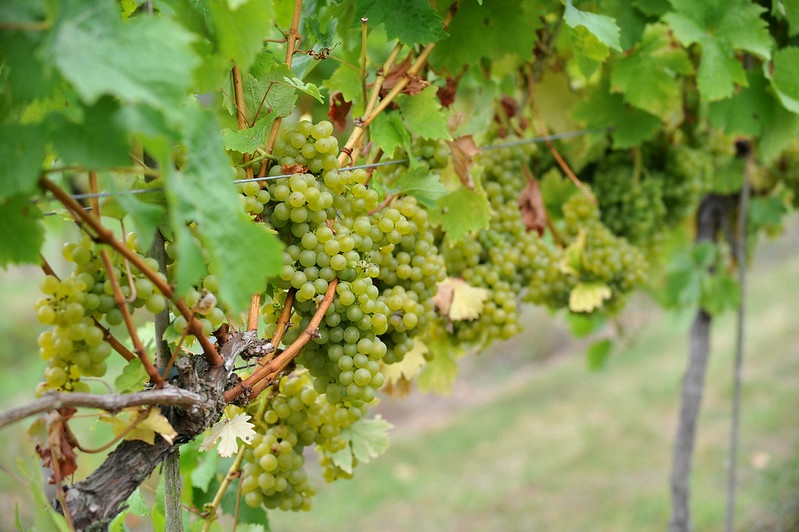Green wine anyone...?

23 October 2023
So, we all know about red, white, and even pink, wine, but a new collaboration between the Royal Agricultural University (RAU) and the University of Worcester is looking at how grape growers might be able to make green wine.
The study, led by the RAU’s Professor of Sustainable Agriculture, Duncan Westbury, will look at how effective wildflowers can be when it comes to making cleaner and greener wine in the UK.
Currently, most vineyards require the extensive use of chemicals like insecticides to control diseases and pests but the use of these products not only has implications for our health, but also for biodiversity and the environment.
Professor Westbury, who joined the RAU in September 2023 having previously worked at the University of Worcester, is the director of the project. He said: “Grape growers need to future-proof production by not only having a greater reliance on alternative pest and disease management strategies, but also strategies to capture and store more carbon in the soil.
“So far, research in this area has focused on ways to maximise the quality and quantity of grapes. Now we need research which will take the industry forward with regards to its environmental sustainability.”
Over the next three years, the study will look at how effective wildflower habitats, planted in the alleyways between the rows of vines, can be in supporting the natural enemies of the pests attacking the grapes and how these habitats might also improve soil health as well as boost biodiversity and the overall health of the vines.
With increasing pressure on growers to reduce their reliance on chemicals due to growing concerns about their direct and indirect impacts, the overall objective is to develop a more resilient and sustainable approach to grape production in the UK.
Professor Westbury added: “There has already been lots of research, all around the world, into vineyards and this has been really helpful for UK growers but different regions have different landscapes, different climates, and different pests!
“British growers need studies to be carried out here looking at the specific issues that we, in the UK, face. The UK currently has around 3,800 hectares of vineyards – including the RAU’s own 2.6 hectare vineyard in Gloucestershire - that would directly benefit from this research.”
Wine production in the UK has increased exponentially in recent years which has been coupled with more land being used for grape growing and the demand for UK wine is expected to continue to rise from 5.9 million bottles being produced in 2018 to a huge 40 million bottles by 2040.
Professor Westbury concluded: “A blueprint for the management of UK vineyards is essential if the sector is to proceed with excellent environmental credentials while expanding exponentially.”
Joe Leaper is the University of Worcester student who will be conducting the research for his PhD. He said: “I’ve studied below ground ecology before and, looking at the scope of this study, it’s exciting to think this could be a real influence for the future, from the labels on the bottles of wine on shop shelves, to the policies and procedures which grape growers and wine producers follow.”
The study is being funded by the Perry Foundation, the University of Worcester, the Bumblebee Conservation Trust, and Everflyht Vineyard.